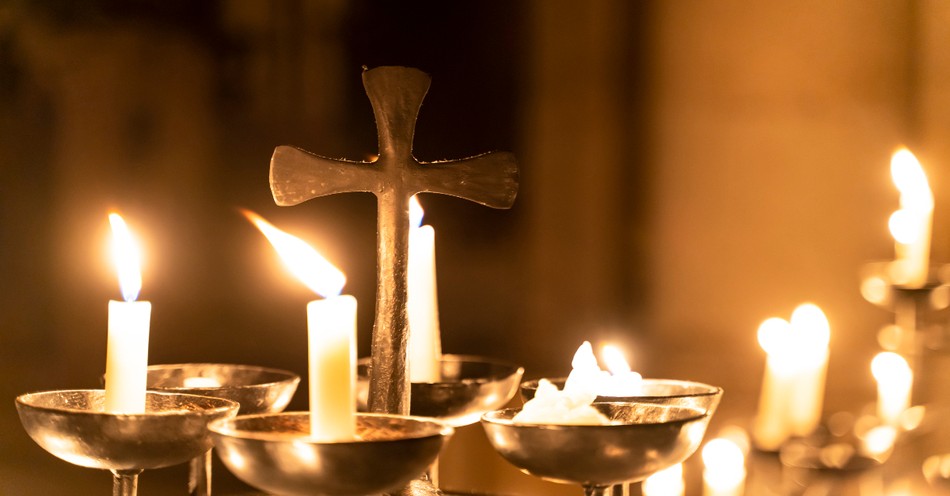Before Jesus’ crucifixion, the cross was a shameful way of execution. After His death and resurrection, it became something that His executioners would never have expected.
What Was the Cross First Used For?
Before a crucifixion, executioners stripped and flogged the accused. Then, the accused were lashed and nailed to a cross. This form of punishment was used primarily by the Roman Empire to punish criminals who had committed serious crimes (usually rebelling against the authorities). Jesus was crucified next to two thieves (Mark 15:27).
Historians say the cross was officially invented by the ancient Assyrians (who later were one of the empires that took Israelites into exile). There is a reference in the Old Testament to an execution method that came before the crucifixion, but it has some of its effects. Deuteronomy 21:21-23 states, “If a man has committed a sin worthy of death, he should be put to death.” Specifically, the man should be hung on a tree. Scripture also reveals that the body should not remain there all night but be buried the same day. Even though burying the body the same day is less shameful, hanging someone from a tree makes them a spectacle as they die similarly to killing them on a cross.
Before this time, cross-like symbols were used in Egyptian religions. The Ankh, as a symbol of life, appeared with pictures of their goddess Sekhet. Another cross symbol was the swastika, later widely used in religions like Hinduism and Buddhism, centuries before the Nazi party appropriated a version of it.
What Did the Cross Mean for People in Jesus’ Time?
As previously mentioned, the Roman Empire used the cross as a public form of capital punishment. Serious criminals and dissenters became a public spectacle as they died on crosses. The cross was a show of authority and a reminder of what would happen if people did not stay in their place. Dying on the cross was a very shameful way of punishment. People really despised this form of punishment. Not only would you be put to death, but you would be made a public spectacle for all to see.
After Jesus’s death, Christians were suspicious of displaying the cross, afraid of being mocked. When Roman Emperor Constantine I converted to Christianity, he stopped crucifixion as a death penalty. Britannica states that Constantine also promoted using the cross and chi-rho monogram to symbolize Christ.
Many Christian churches were built during the fourth and fifth centuries. The buildings were decorated with mosaics of biblical figures, including Jesus and the apostles. After the sixth century and during the Middle Ages, crucifixion depictions became more common. Sometimes, Christ appeared alone. Other times, he would be shown with the two thieves crucified with him.
The meaning of the cross continued to evolve. After the Protestant Reformation, Lutherans kept ornamental and ceremonial depictions of the cross. Reformed churches resisted using the cross until the 20th century. The Anglican church saw a surge in the use of the cross around the mid-nineteenth century. The Church of England uses the cross in the rite of baptism. Protestant churches also display the cross in churches and homes. Many Protestant churches that don’t use a high church liturgy or decorations prefer crosses that do not depict the Lord’s body on it.
How Did Jesus Change the Meaning of the Cross?
When Jesus died on the cross, it became a symbol of His crucifixion. His crucifixion was for the redemption of the sins of man. The cross has become a symbol of salvation and the shedding of Jesus’ blood at the cross. Pastor Charles Stanley has great insight into how the cross symbolizes important themes in the Bible’s larger story:
“The theme of God’s redemptive plan runs through the Bible from Genesis to Revelation. At its heart is Calvary, the place where Jesus died so we could be forgiven. As we read the Scriptures, we see that the cross symbolizes...
Salvation: Jesus bore our sins upon the cross and died in our place so we could be reconciled to God and receive eternal life.
Sacrifice: Christ, who was “in very nature God” (Philippians 2:6 NIV), chose to leave the perfection of heaven and live among sinful people. Laying aside His divine authority, He was born a helpless baby, completely dependent upon others. His first 30 years were spent in obscurity, without recognition of His Messiahship. During His public ministry, He faithfully carried out God’s plan all the way to His death on the cross. Jesus’ days on earth are an example to us of sacrificial life (Romans 12:1-2).
Service: Jesus said He “did not come to be served, but to serve and to give His life a ransom for many” (Mark 10:45). Christ’s supreme act of service was dying on the cross so we might have eternal life. Our Savior calls us to deny ourselves and follow Him through sacrificial service to others (Luke 9:23). As we embrace a lifestyle of humility and servanthood, we will bring glory to our heavenly Father.
In our culture, success is based on achievement. We admire those who perform well in athletics, business, and the arts. However, greatness in God’s kingdom is found in a life of obedience. Are you following His plan and helping others as Jesus did? Have you shared with them the good news of Christ?”
Taken from “The Meaning of the Cross” by In Touch Ministries (used by permission).
From Pastor Stanley’s article, we see the cross symbolizes sacrifice, service, and salvation. Stanley reminds us, drawing from the tenth chapter of Mark, that Jesus did not come to be ministered to but to minister to people. Even if you never receive an official calling, you can minister to others and serve others.
This does not give people the right to walk all over you; untrustworthy people will take that opportunity. You can be a volunteer when time permits because charity begins at home. There is a time and a season for everything. Discern when your time is, when your season is, and what your capacity to serve is, but obey when God calls you.
A Prayer for Reflecting on the Cross's Meaning
Heavenly Father, we come to you to thank you for the blood that was shed at Calvary. We realize you sent your Son, Jesus, who paid an awesome price for our salvation on the cross. He became the curse and bore the sins because cursed was everyone that hung on a tree (Galatians 3:13). We don’t take for granted the price that was paid at Calvary to put the works of the devil under our feet and to have the opportunity to enter into heaven by accepting your Son.
We pray that sinners will get a revelation of all that you allowed Jesus to go through so that He could become the sacrificial Lamb for us. You simplified our lives after the fall of man, and we are eternally grateful. We thank you that Jesus arose three days later and went back to heaven and that you sent the Comforter, the Holy Ghost, who makes petitions for us daily.
Now, we have been given power over sin and the works of the enemy. Keep us close to you as we daily ask for your guidance. In Jesus’ name, Amen.
Further Reading:
How Old Was Jesus When He Died, and How Do We Know?
Where Is Jesus Buried According to the Bible?
Did Jesus Really Sweat Blood in the Garden of Gethsemane?
50 Easter Blessings, Prayers, and Quotes to Celebrate Christ’s Victory
Photo Credit: GettyImages/BulentBARIS

Learn more about the meaning and significance behind the Easter holiday and Holy Week celebrations:
What is Lent? and When Does Lent Start?
What is Ash Wednesday? and When is Ash Wednesday?
What is Palm Sunday?
What is Maundy Thursday?
What is Good Friday? and When is Good Friday?
What is Holy Saturday?
What is Easter? and When is Easter Sunday?
Easter Bible Verses
The Resurrection of Jesus
Easter Prayers








